We’ve had some issues with emails going to hotmail, outlook and related addresses. If you’ve recently made a purchase using one of these and not received a confirmation email, please get in contact with us – use an alterative email address for contact or purchase if you can.

For all things fantasy, horror, and speculative fiction
Announcement:
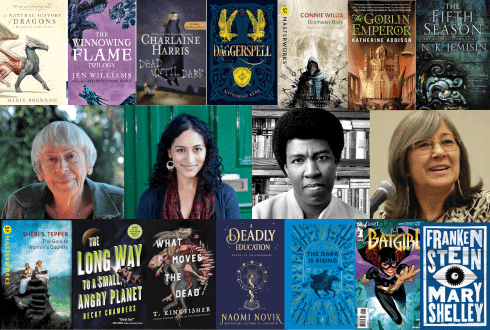
Celebrating the women of SFFH
We asked our Discord members community for their recommendations of SFFH women to celebrate this International Women’s Day. Here’s what they had to say.

We really are in a spectacular age for speculative fiction, and it’s being driven by a lot of exciting woman-identifying authors across science fiction, fantasy, and horror. Naturally, then, for International Women’s Day, I took to the BFS Discord to ask our members for their recommendations. Who should we be reading to celebrate our women writers—not just today, but every day.
Of course, there were some titans that kept coming up—LeGuin, Hobb, Cooper, Shelley—but they were complemented by a wide-range of suggestions both contemporary and classic.
Here’s what our members had to say. Do you agree? Did we miss anything? Let us know in the comments below.
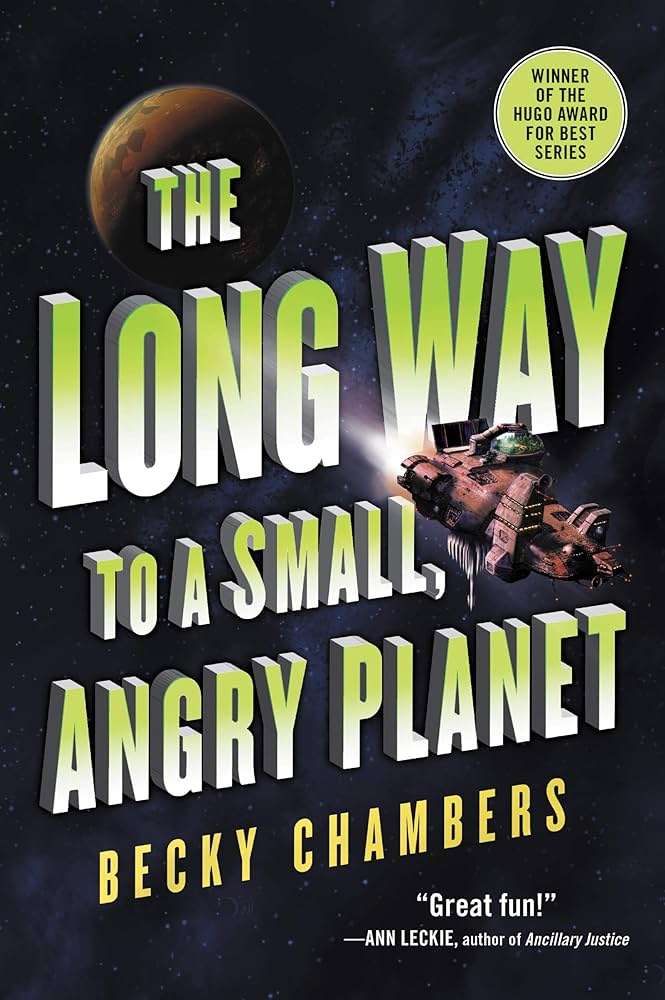
“Everything I’ve read by Becky Chambers has been brilliant. She has such a way of crafting very personal and emotional storylines with relatively low stakes that still make you think about big questions. The Long Way to a Small Angry Planet is the first in a loosely connected series – they could each work as standalones but are probably best enjoyed in order.”
–Laurence J.R. Nix
“Katharine Kerr’s Deverry Cycle is the series that really got me into fantasy! Although I recommend starting with book one in the series, Daggerspell, and not book 11 like I did. Also: Robin Hobb, obviously. Carol Berg is my absolute favourite writer. I first read Transformation when I was 18 and fell in love and she will always be an instant-buy for me. I’d say start with Transformation but it’s a struggle to get hold of in the UK now. She’s just re-released her Bridge of D’Arnath series though, so start with Son of Avonar.”
-KatieTree
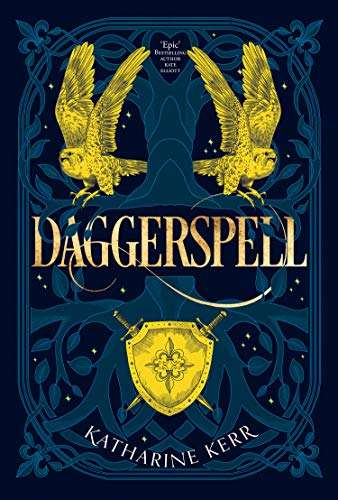
“Oh my god, the list is endless! Ursula Le Guin, Octavia Butler, Tamora Pierce, Susan Cooper, T Kingfisher/Ursula Vernon, and Gail Simone are definite favourites…

“Another is an author I would like to be better known: Margo Lanagan (pictured left). Her work is fantastical, spiky, and strange, and draws on folklore and fairytales in a way that makes similar works seem rather tame. She presents dark and challenging ideas in deceptively clear and beautiful prose, and builds her worlds with a deftness and confidence that makes me extremely jealous. I would recommend starting with her first short story collection Black Juice, and her best-known short story “Singing My Sister Down”.
–Sarah Jackson
“+1 for Margo Lanagan. The Goosle is great too.”
–Neil Williamson
“The Goblin Emperor by Katherine Addison is my favourite book of all time! She has two others set in the same world which are also great. I’ve never read anything written under her non-nom-de-plume, Sarah Monette, though.”
–Hannah Hulbert


“There are so many amazing women writers, but I’ve fallen in love with T Kingfisher over the past few years. Her attention to detail is astounding, the little things that might seem insignificant make characters and places so real. And they stay with you long after you finish the book.”
–PS Livingstone
“The Jasmine Throne and The Oleander Sword by Tasha Suri are stunning. She writes lush, detailed worlds and fully-realised characters and has an unfair ability to break your heart and make you beg for more.”
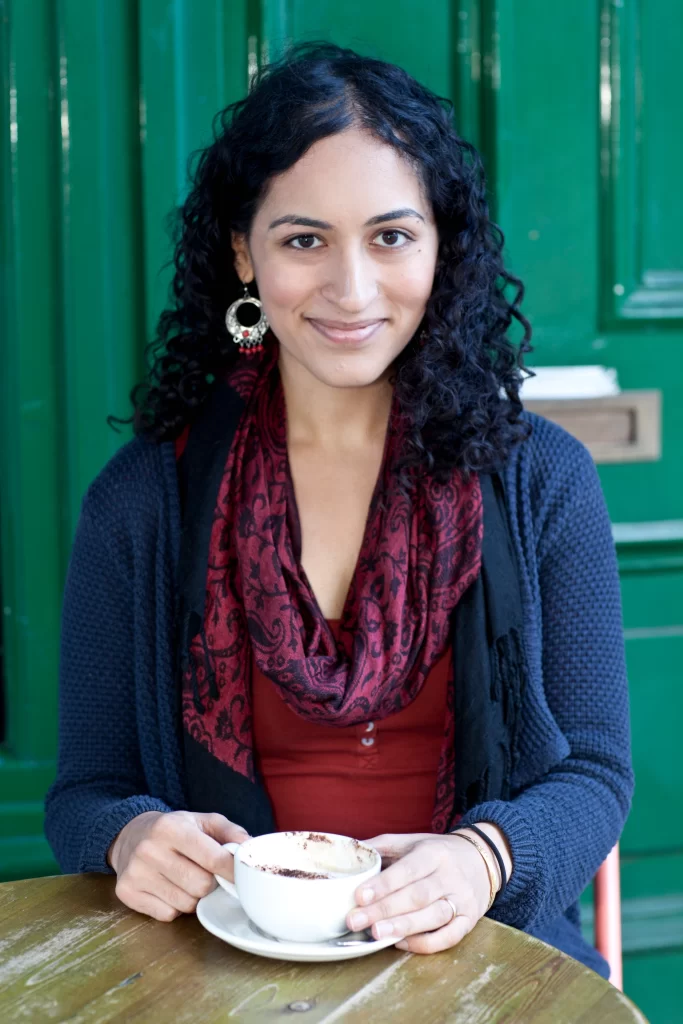
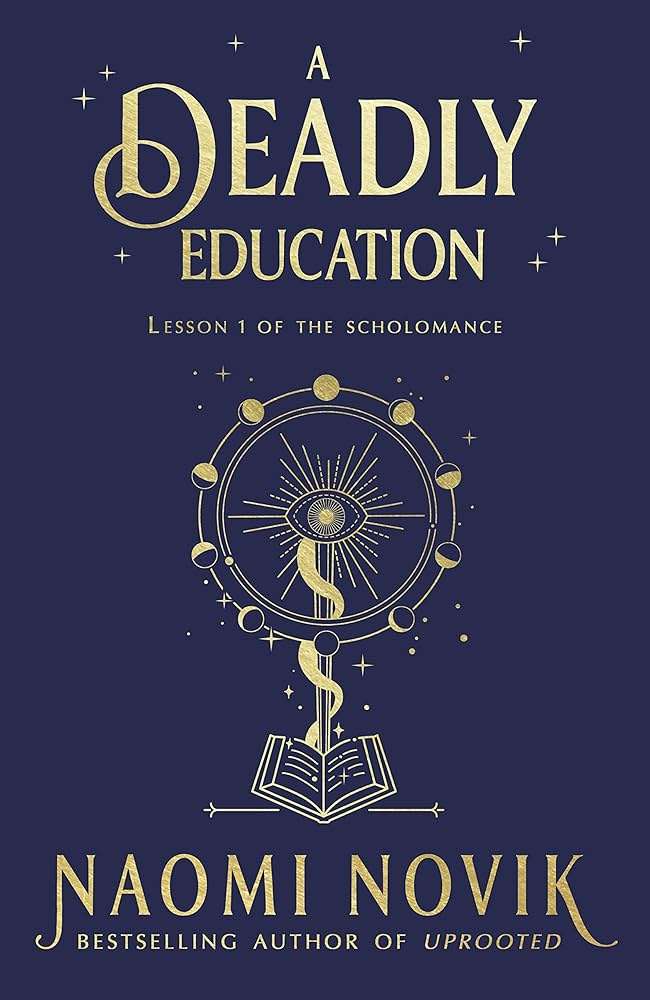
“Naomi Novik is one of my current favourites. Spinning sliver is a great modern fairytale full of central European folklore. A Deadly Education and the rest of the Scholomance Series is my favorite series of recent years.”
-Matthew Palmer
“Ursula K. Le Guin. Her prose is beautiful and lucid; her worldbuilding spins out speculations into incredibly immersive and plausible cultures and mythologies; and she inhabits her characters inhabiting those worlds so thoroughly that it’s hard to believe they’re not real. She started publishing during the New Wave era, but she managed to combine a very contemporary political commitment with a mythopoetic power inspired by Tolkien and other such unhip fuddy-duddies.”
–Oli Arditi
(Ursula Le Guin photo by Richard Jensen)

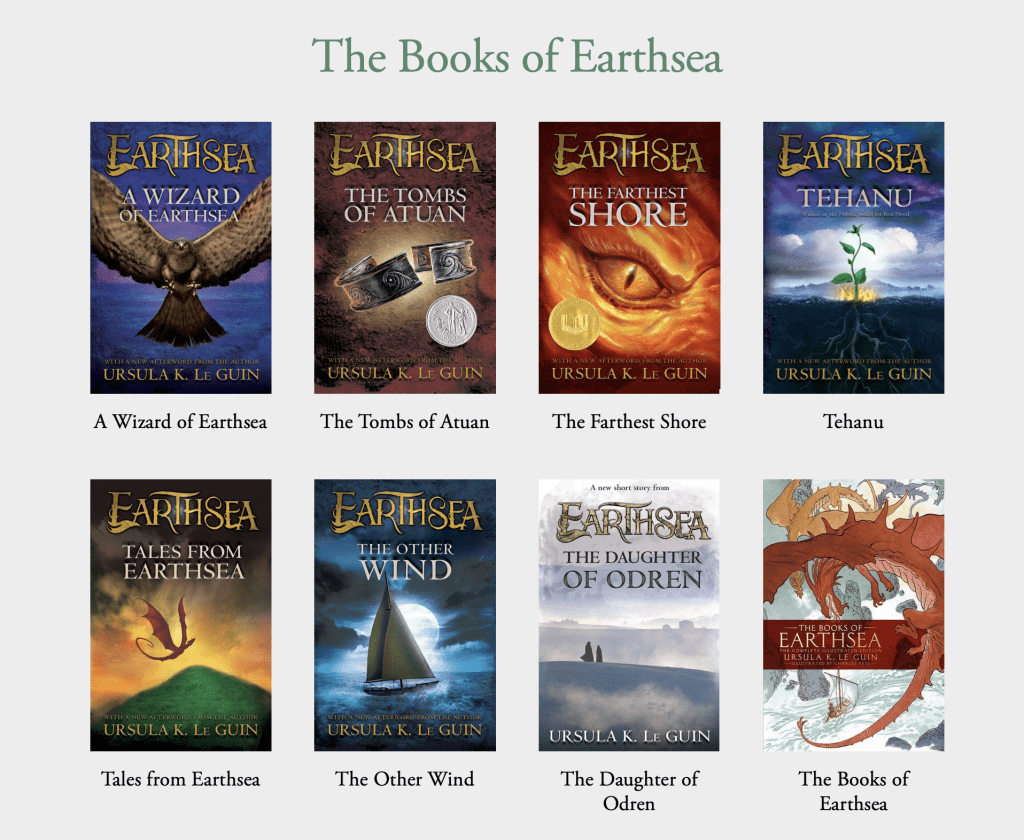
“Ursula Le Guin is a titan in speculative fiction. She traversed the limitless potential of both fantasy and science fiction through empathic characters, imaginative worlds, and by exploring questions that remain vitally relevant to this day. The Earthsea books are a great place to start, either with Le Guin’s work or fantasy in general. Her SF Hainish Cycle series is also excellent, especially The Left Hand of Darkness, and her non-fiction essays on fantasy and science fiction are essential reading.

“Mary Shelley is also a foundational figure in SFFH, and Frankenstein remains one of the best speculative fiction books ever written.
“In terms of contemporary authors, there’s Robin Hobb, N K Jemisin, Rebecca Roanhorse, Ann Leckie, and so many more.”
-SW Holmes
“So many of the above! But also Sheri S Tepper, for downright bizarreness as well as her feminism. The True Game trilogy is what I started with, around age 14, and can’t imagine starting anywhere else though there’s so much to choose from, like Grass, and The Gate to Women’s Country.”
-CJ Henderson

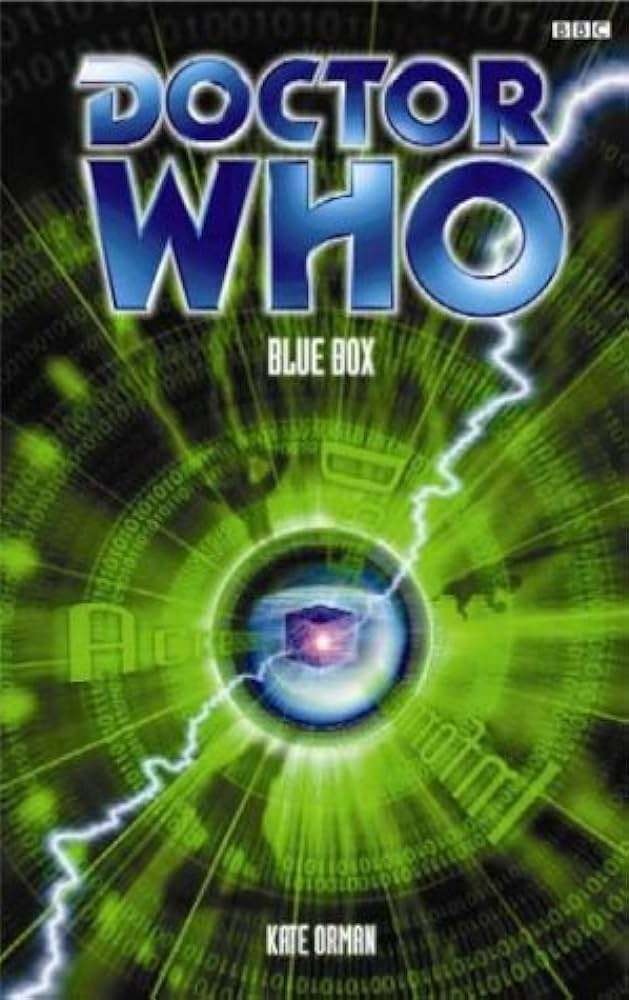
“Showing my 90s Doctor Who book influences (hey, I do co-host a podcast about that very subject!), Kate Orman. She creates such a vivid portrayal of characters and has fantastic world-building in all of her books…
“Non-Who related, I’d also add Connie Willis, who wrote Doomsday Book which I absolutely loved. It’s a fantastic time travel book from the 1990s, set in the era of the Black Death but also the 2050s. Such a vivid portrayal of the central character’s isolation in a world she didn’t understand as well as she thought she did. I gobbled it up.”
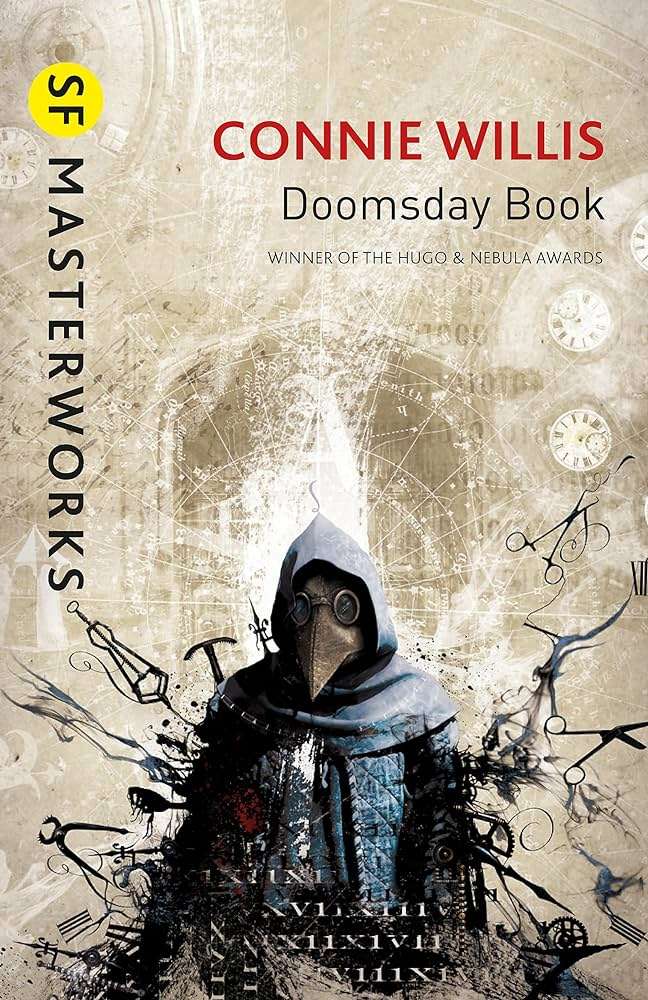

“So many have been mentioned already… Susan Cooper, Ursula le Guin, Mary Shelley, T. Kingfisher and I would like to add Alison Croggon, whose Pellinor series should get more recognition I think, with a female protagonist heroine with a tragic past who sets out to discover her fate and awakening powers. Her words were beautiful, the next female Tolkien…
“Also I would like to add C J Cooke, a feminist gothic writer who draws on folklore, supernatural, and explores women stories. Besides her very popular The Lighthouse Witches, I suggest starting with Ghost Woods if you lean more towards fantasy folklore. Or if you prefer more of the horror, then The Nesting, a domestic Nordic noir.”
–Corinne Pollard
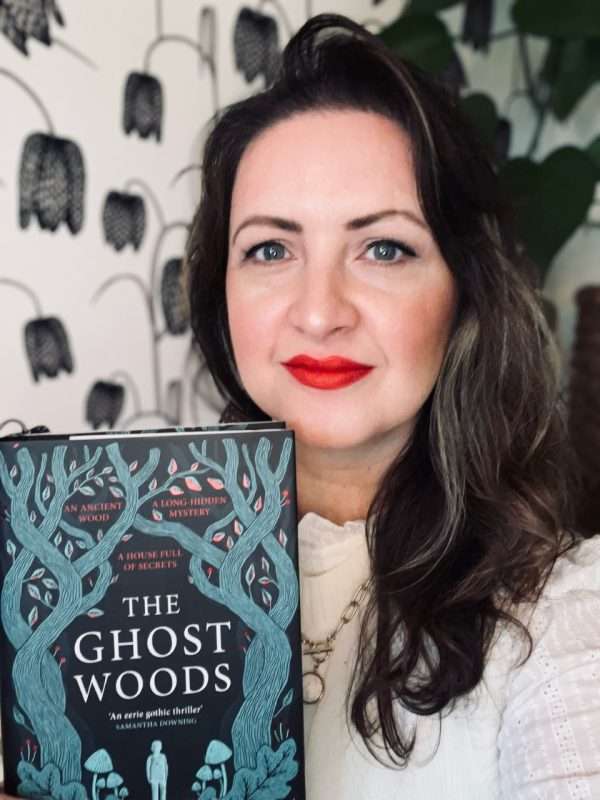
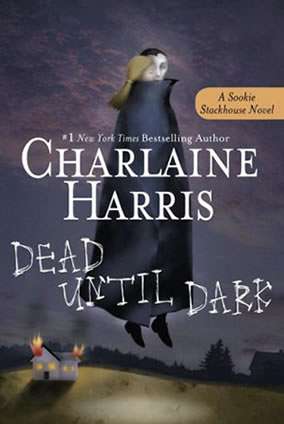
“I think it might be worth mentioning the authors of earlier vampire fiction too – they really got me into urban fantasy. Charlaine Harris and Tanya Huff were my big ones (True Blood and Blood Ties). The fun, sexy female-led stuff. (Also the Anita Blake series but they went off the deep end in a bad way.)”
–Laura Bennett
“Jen Williams was the first name to spring to my mind, I absolutely love The Winnowing Flame trilogy – it’s got a huge range of characters (which is really where these books shine) from fell-witches who can summon the winnow fire, to Eborans who are kind of like vampire elves, to the war-beasts who have fantastic personalities of their own. The setting reminded me of Studio Ghibli with darker vibes. One of my favourites.”
–Alex S. Bradshaw
This recommendation really got members chatting…
Shona Kinsella agreed: “Those books really are spectacular.”
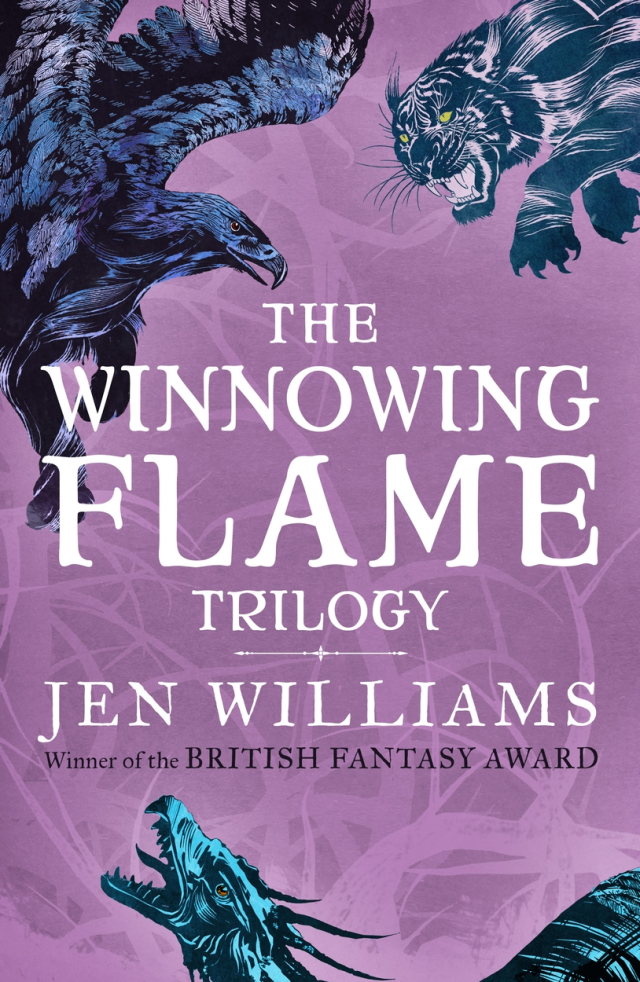

Laurence J.R. Nix added: “That series is such a cool blend of tones. It takes what feels like classic quest fantasy but then somehow also incorporates bizarre horror and sci-fi elements with none of it ever feeling even slightly out of place in the world. And it maintains enough of a hopeful tone and exciting story that I fully enjoyed even the parts where It occasionally gets darker and more gruesome than I tend to enjoy in my fantasy. I’ll definitely be reading her other works at some point soon.”
“A Natural History of Dragons by Marie Brenan was the series that broke my 8-year long slump of not reading or writing (kids and life and so many other things had overwhelmed me.) It lit an absolute fire in my heart for books again, made me remember how FUN they are, and also crucially inspired me to try writing again. Plus it has the only SFF book I’ve read where being stuck in a “period hut” is a legit plotpoint that furthers the story (the women leaders meet there secretly, where the men do not go…)”
-Sunyi

What about you? Which SpecFic-writing woman do you thrust into the hands of everyone you meet? Where would you recommend we start? Let us know in the comments below!